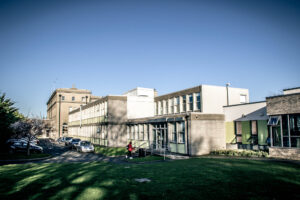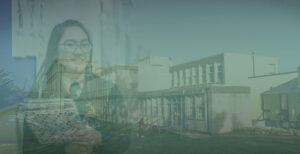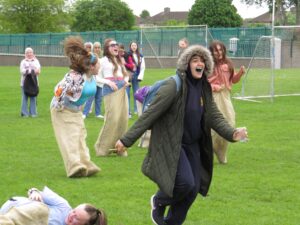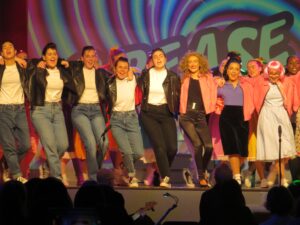Loreto College, Crumlin Road
Closed Circuit Television Policy
Introduction
Loreto College, Crumlin Road, is committed to the care of its students, staff and wider school community. This duty of care is at the core of the school’s characteristic spirit and responds also to its statutory responsibility under the provisions of the Safety, Health and Welfare at Work Act 2005 and associated legislation.
The main purpose of CCTV systems on School premises is to assist in the maintenance of safety and security (personal and property related) and to facilitate proceedings in the context of criminal or civil issues. In this context, safety includes the health and safety of School staff and students and others attending or visiting the School. The CCTV systems may also be used to assist investigations carried out under School policies. In the operation of CCTV systems, the School has regard for the protection of the right to privacy enjoyed by School staff and students as well as visiting members of the public. Those charged with the operation of CCTV systems in the School seek to ensure that the systems are not used in any unauthorized or inappropriate manner.
All CCTV systems and associated equipment will be required to be compliant with this policy following its adoption by the Board of Management of Loreto College, Crumlin Road. Recognisable images captured by CCTV systems are personal data. They are therefore subject to the provisions of the Data Protection Acts 1988 and 2003 and are managed in accordance with the school’s Data Protection Policy.
Rationale for the Policy
The purpose of this policy is to regulate the use of Closed Circuit Television and its associated technology in the monitoring of both the internal and external environs of the premises under the remit of Loreto College, Crumlin Road. CCTV surveillance at the school is intended for the purposes of:
• Promoting the health and safety of staff, pupils and visitors.
• Supporting the Gardaí in a bid to deter and detect crime;
• Assisting in identifying, apprehending and prosecuting offenders.
• Helping to identify or prevent incidents of bullying, in tandem with other pastoral interventions.
• Assisting in the resolution of incidents involving workplace hazards, injuries or near misses
• Reducing the incidence of anti-social behaviour (including theft).
• Ensuring that the school rules are respected so that the school can be properly managed.
• Protecting the school buildings and school assets, both during and after school hours.
While every effort has been made in the layout of the CCTV system to give it maximum effectiveness, it is not possible to guarantee that it will detect every incident that takes place in the building or on campus.
General Operations of the CCTV System
The use of the CCTV system at Loreto College, Crumlin Road is conducted in a professional, ethical and legal manner and any diversion of the use of CCTV security technologies for other purposes is prohibited by this policy e.g. CCTV will not be used for monitoring employee/student performance.
Information obtained through the CCTV system may only be released when authorised by the Principal, following consultation with the Chairperson of the Board of Management and in accordance with the Data Protection Policy, available on the school website. CCTV monitoring of public areas for security purposes will be conducted in a manner consistent with all existing policies adopted by the school, including Dignity in the Workplace Policy and other relevant policies, including the provisions set down in equality and other educational and related legislation.
This policy prohibits monitoring based on the characteristics and classifications contained in equality and other related legislations e.g. race, gender, sexual orientation, national origin, disability etc. Video monitoring of public areas for security purposes within school premises is limited to uses that do not violate the individual’s reasonable expectation to privacy.
Location of Cameras
Reasons for the use of CCTV Video Monitoring and Recording of Public Areas at Loreto College, Crumlin include the following:
● Protection of school buildings and property: the building’s perimeter, entrances and exits, locker areas, receiving areas for goods/services.
● Monitoring of Access Control Systems: Monitor and record restricted access areas at entrances to buildings and other areas
● Verification of Security Alarms: Intrusion alarms, exit door controls, external alarms
● Video Patrol of Public Areas: Parking Areas, Main entrance/exit gates
Loreto College, Crumlin Road, does not engage in covert surveillance
Notification – Signage
This CCTV Policy is available to staff, students, parents and visitors to the school via the school’s website. Adequate signage will be placed at each location at which a CCTV camera is sited. Adequate signage will also be prominently displayed at the entrance to the schools’ property. Signage includes the name and contact details of the data controller as well as the specific purpose(s) for which the CCTV camera is in place in each location. An example of this school’s signage is displayed hereunder.
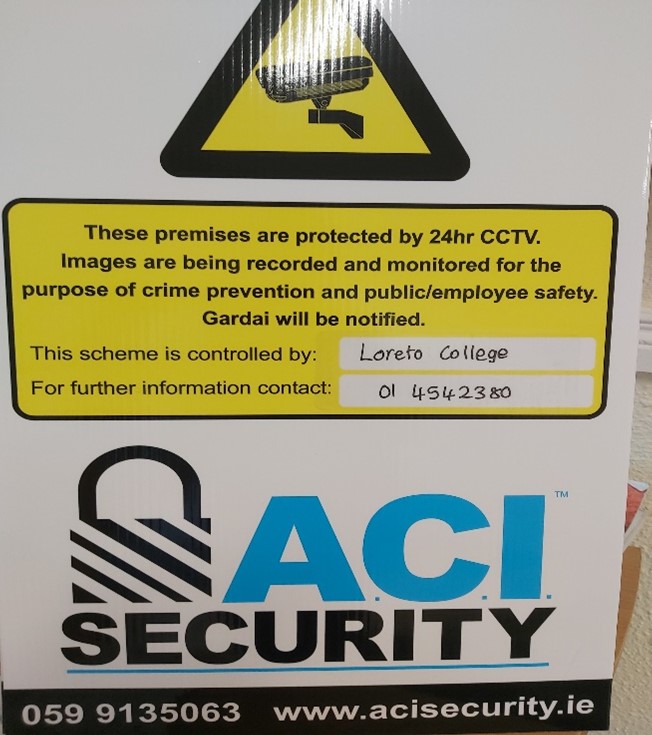
Storage and Retention
Section 2(1)(c)(iv) of the Data Protection Acts requires that data not be kept for longer than is necessary for the purposes for which it was obtained. At Loreto College, Crumlin Road, this period of retention is twenty-eight (28) days, except where the images identify an issue – such as a break-in or theft and those particular images/recordings are retained specifically in the context of an investigation/prosecution of that issue.
The images/recordings are stored in a secure environment with a log of access kept. Access will be restricted to the Principal and other members of staff nominated by the Principal for that purpose. Supervising the access and maintenance of the CCTV System is the responsibility of the Principal. The Principal may delegate the administration of the CCTV System to another staff member. In certain circumstances, other individuals may also view the recordings in order to achieve the objectives set out above (such individuals may include the Gardai, the Deputy Principals, the relevant Year Head, other members of the teaching staff, representatives of the Department of Education and Skills, representatives of the HSE and/or the parent/guardian of a recorded students). When CCTV recordings are being viewed, access will be limited to authorized individuals on a need-to-know basis.
Access Requests
Requests shall be made in writing to the School Principal, either by email or using a ‘CCTV REQUESTS – Subject Access Request Form’ (Appendix 1). Any person whose image has been recorded has a right to be given a copy of the information recorded, provided that such an image/recording exists i.e. has not been deleted and provided also that an exemption/prohibition does not apply to the release. Where the image/recording identifies another individual, those images may only be released when they can be redacted so that the other person is not identifiable.
A Data Subject should provide all the necessary information to assist in locating the CCTV recorded data, such as the date, time and location of the recording. If the image is of such poor quality as not to clearly identify an individual, that image may not be considered to be personal data and may not be handed over by the school.
In giving a person a copy of his/her data, the school may provide a still/series of still pictures or USB stick with relevant images. However, images of other individuals will be obscured before the data is released.
Third-Party Access
Access Requests by An Garda Síochána
Access requests by An Garda Síochána shall be processed where such processing is necessary and proportionate for preventing, detecting, investigating or prosecuting criminal offences. Requests are approved by the School Principal. Verbal requests are sufficient to allow for the viewing of the footage. However, verbal requests for copies of footage must be followed up with a formal written request using ‘CCTV REQUESTS – Third Party Request Form’ (Appendix 2). A log is maintained of all requests by An Garda Síochána.
Other Third-Party Access
Disclosure of information to other third parties is made in strict accordance with the purposes of the system and is limited to the following authorities:
• Legal or insurance representatives of data subjects (with written consent of data subjects).
• Loreto College’s insurers/assessors.
• In exceptional cases, to others to assist in the identification of a victim, witness or perpetrator in relation to a criminal incident.
• CCTV companies for service/repair and to pixelate images.
Review
The policy will be reviewed and evaluated every three years, or more frequently if needed to reflect changing legislation or guidelines (e.g. from the Data Protection Commissioner, An Garda Siochana, Department of Education and Skills, etc.
